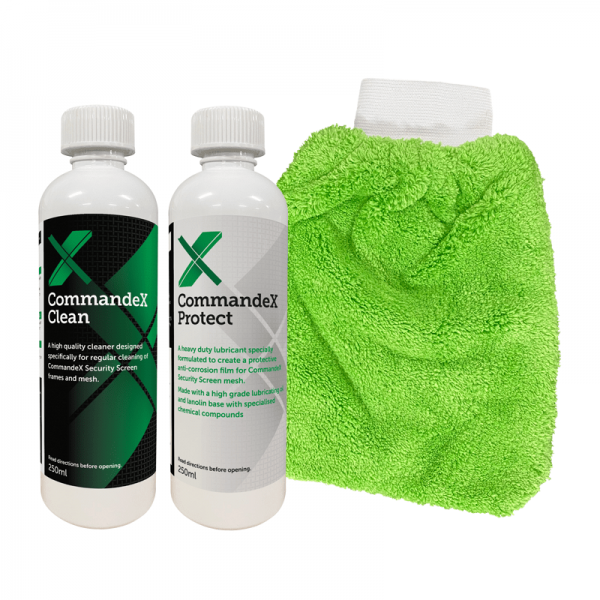STEP 2 – Wash
Wash the screens (mesh and frame) with a soft cloth and recommended cleaner as advised in the manufacturer’s warranty terms. Supaview recommends using regular car wash and wax, however extended warranty registrations do require specific products. Always check the care and maintenance guide for your specific product.

